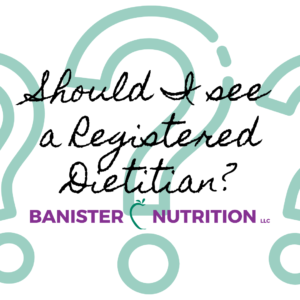How to Spot a Fad Diet and What You Should Do Instead for Long-Term Health Success
Making the decision to improve your health through dietary changes is a fantastic first step. However, it’s important to ensure that the path you choose is sustainable and healthy in the long run. Many people turn to trendy diets in hopes of seeing fast results, but the truth is, most “fad diets” aren’t practical or effective for lasting change. While they may offer short-term benefits, they often come with downsides that make them difficult (or even dangerous) to maintain.
If you’re considering changes to your diet, here are some red flags to watch out for to help you identify if it’s a fad diet:
1. Is It Realistic Long-Term?
Ask yourself: “Is this doable for the long haul?” If the answer is no, it’s likely a fad. Sustainable changes that improve your health need to be flexible and manageable. A diet that you can only maintain for a few weeks or months is a sign that it’s too restrictive to be effective in the long run.
2. Promises Fast Results
If a diet sounds too good to be true or promises quick fixes like rapid weight loss, it’s probably not a healthy choice. Sustainable weight loss and health improvements take time and consistent effort. A good approach focuses on gradual, lasting changes rather than unrealistic goals that promise quick fixes.
3. Eliminates Entire Food Groups
Fad diets often completely remove certain foods or entire food groups from your meals. This can lead to nutrient deficiencies over time. Every food group offers essential vitamins, minerals (and many other benefits), and eliminating them can impact your overall health and energy levels.
4. Good vs. Bad Foods
If the diet labels foods as “good” or “bad,” or imposes strict “allow” and “off-limits” categories, that’s a major red flag. This kind of thinking can foster unhealthy relationships with food, causing guilt, frustration, or cravings. Food is not inherently “bad.” A balanced approach is far more beneficial for both physical and mental health.
5. Drastic Calorie Restriction
Extreme calorie restrictions can slow down your metabolism, make you feel sluggish, and even lead to binge eating when you finally break free from the diet. A balanced, well-rounded diet that provides adequate nourishment supports metabolism and helps with long-term weight management.
6. Pushing Supplements or Products
Be wary of diets or products that promise miraculous results when paired with pills, powders, or supplements. These products often lack scientific evidence to support their claims. There’s no magical shortcut to improving health or losing weight. Focus on real, whole foods instead of relying on gimmicks.
7. Lack of Flexibility
A good diet should fit into your life, not control it. If the plan doesn’t allow for flexibility — like enjoying meals out with friends or having an occasional treat — it’s likely too rigid. Overly restrictive diets can lead to food obsession and feelings of deprivation, which makes them hard to stick with in the long run.
8. Promoted by Celebrities or Non-Experts
Be cautious when a diet or product is endorsed by celebrities, influencers, or individuals with limited nutrition credentials. While they may have a large following, they often lack the education or expertise to provide sound, evidence-based nutrition advice. Always seek guidance from registered dietitians or healthcare professionals with appropriate qualifications (if the healthcare professional has an infomercial, be suspicious).
What Works for Long-Term Health and Success
Instead of turning to the latest fad diet, focus on creating a sustainable lifestyle that prioritizes health over quick fixes. A balanced approach allows for flexibility and doesn’t leave you feeling deprived, which is essential for long-term weight management, improved lab work, and a better relationship with food. Pay attention to the signals your body is giving you, rather than rigid diet rules.
Working with a registered dietitian can be an invaluable resource in this process. A dietitian will help you tailor dietary changes to fit your unique needs, troubleshoot challenges, and provide ongoing support to keep you on track. Together, you can create a plan that works for you—one that sets realistic, achievable goals without the stress of falling into the trap of fad diets.

